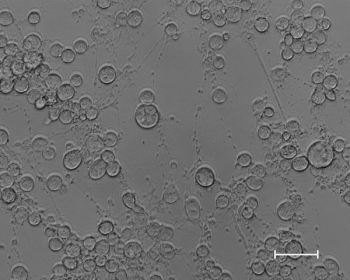
Oregon State University receives National Science Foundation grant
The $250,00 grant will help the veterinary college in its development of antibody treatment for canines with cancer
Oregon State University Carlson College of Veterinary Medicine announced that thanks to funding provided in a grant from the National Science Foundation, its researchers can move forward in developing a specialized antibody treatment for dogs with cancer. Through this treatment, canines will have an effective, gentler, and more targeted approach to fighting cancer, like immunotherapeutic use to treat people suffering from cancer.
“It’s not a drug like chemotherapy where it’s a toxin. You’re actually recruiting the body’s natural immune response for clearing out transformed cells — for instance, a tumor — and then it kills them,” said Dan Mourich, PhD, senior OSU research associate and the molecular biologist on the research team, in an organizational release.1
According to the release, the research team consists of Chris Cebra, VMD, MA, MS, DACVIM, camelid expert and the chair of the clinical sciences department in OSU’s veterinary college, Shay Bracha, DVM, MS, former OSU professor and clinical veterinary oncologist, and Carl Ruby, PhD, a veterinary pharmacology instructor at OSU.
When it comes to the research, it was developed through unlikely collaborators, OSU’s llamas and alpacas that are in the camelid family. According to the release,1 the research teams injected a protein found within canine tumors which then provoked the animal’s immune system to create a specific antibody in response to the protein. Then, researchers screened a ‘genetic library’ of the results to help determine which antibodies were the most effective at binding and blocking tumors from interacting with a dog's cytotoxic killer T-cells.
With this grant, researchers will be able to develop a clinical candidate and establish the treatment's production method, which will then lead to a clinical trial to test the treatment's effectiveness.
“The efficacy of immune-based therapeutics has already been tested in the human clinic for cancer and other diseases, but we’re not going to take human drugs and try to adapt them to the dog. We’re going to make the dog drug that does the same thing,” expressed Mourich.
Reference
NSF grant to OSU researchers will aid development of antibody treatment for dogs with cancer. News release. Oregon State University. August 25, 2022. Accessed August, 31, 2022.
Newsletter
From exam room tips to practice management insights, get trusted veterinary news delivered straight to your inbox—subscribe to dvm360.





